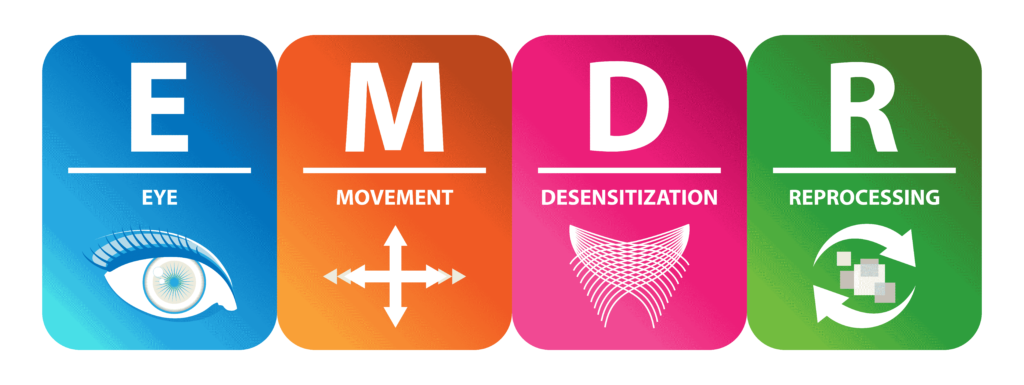Eye Movement Desensitization and Reprocessing (EMDR) is a structured, evidence-based psychotherapy method that helps individuals process and heal from traumatic experiences. By targeting distressing memories, EMDR empowers patients to reduce emotional pain, build resilience, and improve their overall mental health.

EMDR is a unique therapy designed to help individuals process unresolved memories and experiences that contribute to emotional and psychological distress. Unlike traditional talk therapy, EMDR utilizes bilateral stimulation—such as guided eye movements, tapping, or auditory tones—to help the brain reprocess traumatic memories.
Trauma can cause memories to become “stuck” in the brain, leading to ongoing symptoms of distress, such as anxiety, flashbacks, and intrusive thoughts. EMDR works by enabling the brain to reprocess these memories and integrate them into a more adaptive framework. This can reduce the emotional intensity of traumatic memories.

Therapist gathers information about the patient’s history and identifies traumatic memories.
Patient is introduced to the EMDR process and taught relaxation techniques to manage distress.
Specific memories, associated negative beliefs, and emotional triggers are identified.
Bilateral stimulation is used to reprocess the traumatic memory, reducing its emotional charge.
Positive beliefs are reinforced to replace previously negative thought patterns.
Patient identifies and resolves any lingering physical tension related to the trauma.
Each session ends with techniques to ensure the patient feels grounded and safe.
Progress is reviewed in subsequent sessions to assess ongoing improvements and address new issues.
EMDR is primarily used for trauma-related conditions, but its applications extend to other mental health issues:
Reduces the emotional impact of traumatic memories and associated flashbacks.
Reframes anxiety-inducing thoughts and memories to foster a sense of calm.
Addresses underlying trauma contributing to depressive symptoms.
Desensitizes the fear response associated
with specific triggers.
Helps process unresolved grief and
find closure.
Reframes pain-related memories
and reduces psychological suffering.


Sessions are conducted in a safe, supportive environment. The therapist will guide you through recalling distressing memories while using bilateral stimulation to reprocess them. Many individuals report feeling a significant reduction in emotional distress after just a few sessions.

EMDR is effective for individuals struggling with trauma, anxiety, or other mental health challenges. It is especially beneficial for those who have not found relief through traditional therapy methods. A licensed therapist can assess your needs and determine if EMDR is the best approach for you.

At [Your Clinic Name], our trained EMDR therapists are committed to providing compassionate, evidence-based care. We work collaboratively with you to address past experiences and help you build a healthier, more balanced future.
This page will highlight EMDR as a trusted and innovative therapy option while emphasizing your clinic’s expertise in offering this specialized treatment.